#ahmadi religion
Text
Accounts spreading Ahmadi religion now blocked
The Malaysian Communications and Multimedia Commission (MCMC) has blocked social media accounts spreading Ahmadi religion following concerns raised by the Islamic Development Department Malaysia (Jakim).
Social Media Links
Follow us on:
Instagram
Threads
Facebook
Twitter
YouTube
DailyMotion
Read More News #latestmalaysia
Ahmadi religion
Minister in the Prime Minister’s Department Datuk Dr…
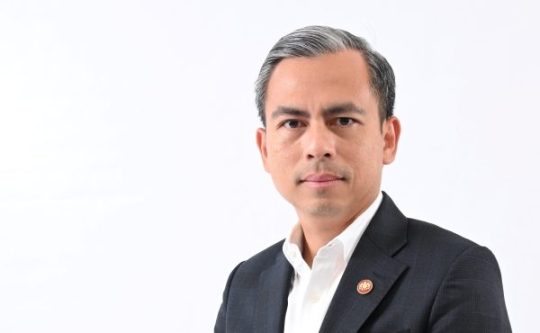
View On WordPress
0 notes
Text
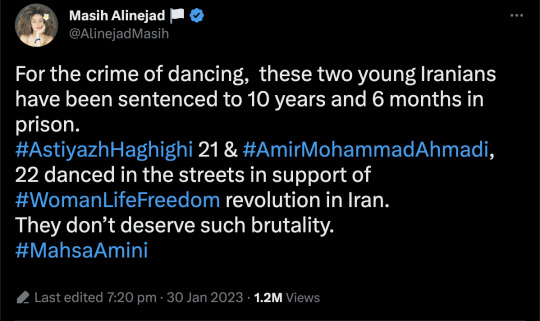
Published: Jan 31, 2023
PARIS: An Iranian court has handed jail sentences of over 10 years each to a young couple who danced in front of one of Tehran’s main landmarks in a video seen as a symbol of defiance against the regime, activists said on Tuesday.
Astiyazh Haghighi and her fiance Amir Mohammad Ahmadi, both in their early 20s, had been arrested in early November after a video went viral of them dancing romantically in front of the Azadi Tower in Tehran.
Haghighi did not wear a headscarf in defiance of the Islamic republic’s strict rules for women, while women are also not allowed to dance in public in Iran, let alone with a man.
A revolutionary court in Tehran sentenced them each to 10 years and six months in prison, as well as bans on using the Internet and leaving Iran, the US-based Human Rights Activists News Agency (HRANA) said.
The couple, who already had a following in Tehran as popular Instagram bloggers, were convicted of “encouraging corruption and public prostitution” as well as “gathering with the intention of disrupting national security,” it added.
HRANA cited sources close to their families as saying they had been deprived of lawyers during the court proceedings while attempts to secure their release on bail have been rejected.
It said Haghighi is now in the notorious Qarchak prison for women outside Tehran, whose conditions are regularly condemned by activists.
Iranian authorities have clamped down severely on all forms of dissent since the death in September of Mahsa Amini, who had been arrested for allegedly violating the headscarf rules, sparked protests that have turned into a movement against the regime.
At least 14,000 people have been arrested, according to the United Nations, ranging from prominent celebrities, journalists and lawyers to ordinary people who took to the streets.
The couple’s video had been hailed as a symbol of the freedoms demanded by the protest movement, with Ahmadi at one moment lifting his partner in the air as her long hair flowed behind.
One of the main icons of the Iranian capital, the gigantic and futuristic Azadi (Freedom) Tower is a place of huge sensitivity.
It opened under the rule of the last shah Mohammad Reza Pahlavi in the early 1970s when it was known as the Shahyad (In Memory of the Shah) Tower.
It was renamed after the shah was ousted in 1979 with the creation of the Islamic republic. Its architect, a member of the Bahai faith which is not recognized in today’s Iran, now lives in exile.
#Astiyazh Haghighi#Amir Mohammad Ahmadi#iran#dancing#iranian revolution#iran revolution#islamic republic of iran#islamic regime#iranian regime#iran regime#iranian protests#iran protests#islam#islamic republic#religion#mahsa amini#woman life freedom#religion is a mental illness
114 notes
·
View notes
Text
"About the Blogger" Meme
thanks for tagging me <3 @razielim
Star Sign(s): Gemini sun (Libra moon, Libra rising)
Favorite Holidays: Eid, and my birthday hehe
Last Meal: Cereal
Current Favorite Musician: Well, Kendrick Lamar was in my top artists for spotify wrapped this year because I listened to his latest album a lot, so I guess him
Last Music Listened To: First Person Shooter by Drake ft. Jcole lol
Last Movie Watched: omg I watched the movie Nimona and loved it! and before that I was obsessed with Across the Spiderverse for months.
Last TV Show Watched: Just started watching Blue Eye Samurai. its soooooo gooddd. and before that I watched Arcane (i'm late) and I also loved that. and before before that I watched The Bear (wow thats a lot of shows in a short period of time i dont usually even have the stamina to watch shows ngl). Has anyone noticed that Caitlyn Kiramman and Mizu look very similar ? lol
Last Book/Fic Finished: omg THE sydcarmy fic "Fundamentals for the Fun and the Mental" by @bioloyg
Last Book/Fic Abandoned: damn idk, maybe the academic books I have to read for my intro to islam class. those thangs are hefty im not reading more than what is assigned
Currently Reading: Islamic Feminism in Iran by Fereshteh Ahmadi. it's research for my final paper in the intro to islam class. very interesting and enlightening tbh
Last Thing Researched for Art/Writing/Hyperfixation: see above. my topic for the paper looks at how iranian muslim women have reconciled with their religion as it was being used against them pre and post-revolution. there's a lotttt of material out there on the topic. despite what we've been led to believe in western culture, my professor stresses that iran is actually the most secular country in the world. and when you look into the history you can clearly see why that is.
Favorite Online Fandom Memory: meeting my friends during the atla renaissance <3
Favorite Old Fandom You Wish Would Drag You Back In/Have A Resurgence: the atla fandom was/is so obnoxious but in its height in 2020 it was fun seeing a really rich meta appear on the dash for every 5 dumb opinions. everybody was making gifsets and art and fics and it was so much fun. now its slowed down a bit and the only parts of fandom still kind of active are the shippers lol
Favorite Thing You Enjoy That Never Had an Active or Big "Fandom" but You Wish It Did: more like a fandom within a fandom- im glad that the "zukaang" ship stayed pretty niche within the atla fandom. like it wasn't so tiny but we stayed in our own spaces (and rlly won the idgaf war when it came to the hate) and it was just full of mature wonderful people writing THE best meta and fics and just genuinely enjoying the show, which was rare in the fandom (ironically enough)
Tempting Project You're Trying to Rein In/Don't Have Time For: so many. i have so many ideas and fics that cross my mind whenever i watch something new but i never have time for them :(. i started a spiderverse miles x miles42 fic and never got to finish it :(((. maybe after finals 🤞
Tagging: @squippy-lemonwhore @enosimania @thefudge @currymanganese @thinkingisadangerouspastime @catty-words @bioloyg @praetorqueenreyna @lady-tortilla-chip @irresistible-revolution @donkeylauncher @unseemingowl as well as ANYONE ELSE who wants to.
17 notes
·
View notes
Text
Bracket D Round 1
Poll 31
Nafanua (@italic-b0ld) vs. Melika Ahmadi (@crimmycram)
253. Nafanua (@italic-b0ld)
She/Her
silly teen who commits warcrimes bc i thought it would be funny if a teenager was a bit evil
5'10 Polynesian female with big eyes, usually sad looking facial expression due to her face shape, has hand feet, wears a trenchcoat and can shapeshift, with few limitations
254. Melika Ahmadi (@crimmycram)
She/Her
She's a lesbian and she's Iranian and she's silly and she has an extremely complicated relationship with religion and she has mommy issues and she wakes up at 6 am while she goes to sleep at 3 am and she sneaks into her friends' houses through the window instead of knocking on the door like a normal person and she writes about cryptids and horrors in a little cute unicorn notebook. Also she's autism.
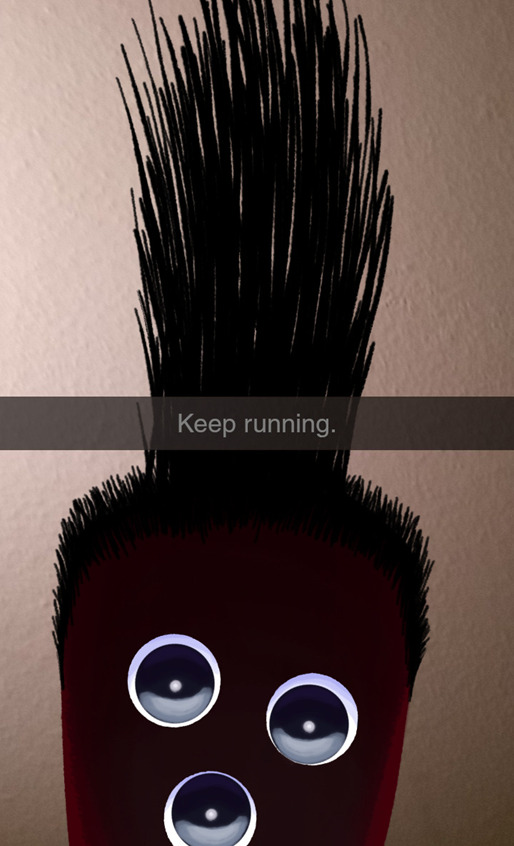
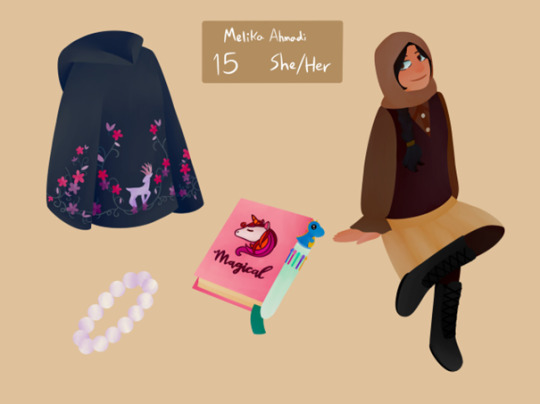
44 notes
·
View notes
Text
Most Christians aren't white.
I've seen a lot of white exvangelicals sharing their stories on TikTok and Tumblr. While I definitely feel for y'all (I also grew up going to white, conservative churches), I've also realized that many of the critiques y'all have of Christianity are full of racial biases.
I talked about it in depth on my website but I figure it wouldn't hurt to share some thoughts here, too.
Here are just a few assumptions that white exvangelicals have about Christianity, based on what I've heard:
MYTH #1: Christianity is a white man's religion.
Yes, white colonizers forced indigenous people convert to Christianity. However, Christianity wasn't a white religion to begin with—it originated in the Middle East.
In fact, Albania and Ethiopia were the first countries to recognize Christianity... in the 4th century AD!
MYTH #2: All Christians are as conservative as the Duggars.
Yes, Christians like evangelical Protestants do have conservative views. But Christianity is incredibly diverse.
In the United States, denominations like the United Church of Christ and the Episcopal Church are progressive, believing in justice for all. Even in Africa, where LGBTQ folks and allies face severe penalties, there are some churches that affirm the queer community.
MYTH #3: Only Christianity has serious issues.
Yes, Christian groups have made headlines for sex scandals and other horrible actions. But Christianity isn't the only religion that has its problems.
For example:
The leader of the Ahmadi sect, which has the largest mosque in Britain, faced rape allegations in 2022.
The leader of a prominent Buddhist group was also accused of rape in 2019.
The rabbi of an Orthodox Jewish community in New Jersey was accused of sexual abuse the same year that the Roman Catholic Church was accused of clergy abuse.
Where there are people vying for power, there are going to be abuses of that power... even in religious communities.
We need to change the way we share our experiences.
Bottom line: for white exvangelicals, our church experiences are not the norm. We need to recognize our racial biases if we want to have healthy, accurate conversations about what we went through.
10 notes
·
View notes
Text
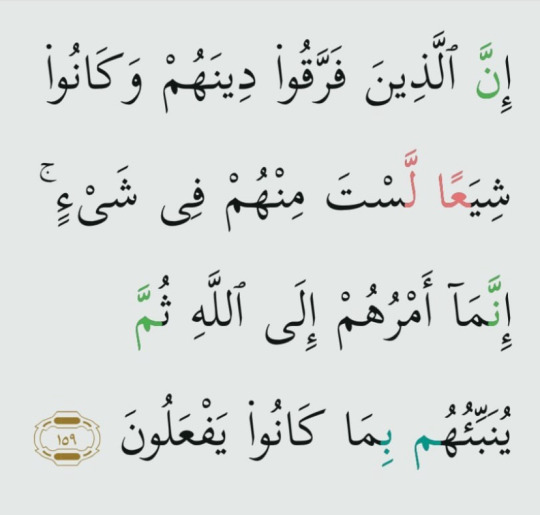
6. SURAH AL-AN’AM
159. Verily, those who divide their religion and break up into sects (all kinds of religious sects) , you (O Muhammad ) have no concern in them in the least. Their affair is only with Allah, Who then will tell them what they used to do.
These are the Tijanis Sufis Ahmadis Shias, etc. Those which differ from the Sunnah of the Prophet Muhammad (saw). Think about it, people.
This surah was revealed during the lifetime of Prophet Muhammad (saw). Imagine how many religious sects arose out of nowhere after his demise.
Tijani claiming that it was Rasul (saw) himself told him in the dream to invent his own tariq (way). And so many other so-called saints.
What in the world is a saint, anyway? There’s no saint in Islam.
3 notes
·
View notes
Text
Allah supreme: how Pharoah Sanders found freedom and rebellion in Islam | Pharoah Sanders | The Guardian
The day the music died was 24 September 2022. On that Saturday, the legendary tenor saxophonist Pharoah Sanders, a man who blew his horn “as if he was a dragon breathing fire”, passed on, at age 81. With his death came the end of a majestic era, a time of saxophone spirituality and musical mysticism that will probably never be surpassed or even replicated. Sanders, like so many of his generation, channeled spirit into song, drawing inspiration from a panoply of sacred sources.
For a while, younger hip-hop generations also found words and meaning in a similar kind of search, and the music –along with the quest – continued.
But jazz has changed and hip-hop has changed.

Never mind that only some of these artists adopted the faith itself. It was their notes and their tones that counted. Plaintive, modal, quarter-toned and chromatic, these aural landscapes of east and west and everything in between stretched the imaginations of both players and audiences. Inside the music, new alliances were forged between people and with all that was holy.
To some people, though, the music just seemed cacophonous and angry. White critics often didn’t understand. Even as astute a thinker as the English Marxist historian Eric Hobsbawm wrote, in 1959, that jazz’s “flight into Mohammedanism or some other non-white culture” was a way to “sidestep” a rising avant-garde jazz that was seeking white acceptance. Describing the era, Hobsbawm explained that “the marvelous political awakening of all the oppressed and underprivileged in Roosevelt’s America put a new tone into the jazz musician’s instrument: open resentment”.
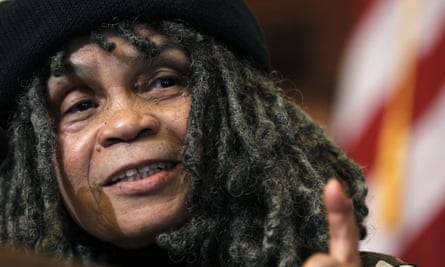
If all you heard during the long civil rights era was an endless blow of rage, you were missing out since you weren’t listening. The love was everywhere and all over the music. The piano player Ahmad Jamal told an interviewer: “I get my approach to life from the Holy Qur’an. I belong to the Ahmadiyya movement in Islam. Our motto is, ‘Love for all; hatred for none.’” (Many of the jazz musicians of that era came to Islam through the Ahmadiyya movement, a religious revivalist movement that began in late 19th-century India. It was led by Mirza Ghulam Ahmad, a charismatic reformer who believed he had received divine revelations that required him to promote the unity of all religions as manifest through Islam. Ahmadis came to the USA in the 1920s and found receptive audiences in African American communities.)
And it was a love supreme. I’ve argued elsewhere that Coltrane’s most famous song, A Love Supreme, has its own Islamic echoes (the chant “a love supreme” starts to sound a bit like “Allah supreme” after a while). Pharoah Sanders, who played with ’Trane starting in 1965, extended Coltrane’s legacy after his death in 1967.
Meanwhile, Sanders continued to build his own spiritually inflected, religious ecumenical style. His 1969 hypnotic track Hum-Allah-Hum-Allah-Hum-Allah meditates on the words “Prince of peace / Won’t you hear our pleas / And ring your bells of peace / Let loving never cease” for an enveloping and achingly beautiful 15 minutes. His classic The Creator Has a Master Plan had its own second coming when it was re-released in a trip-hop remix in the mid-90s. The Trance of Seven Colors, Pharoah’s work with the master Gnawa musician of Morocco Mahmoud Guinia is simply transcendent on an interstellar plane.
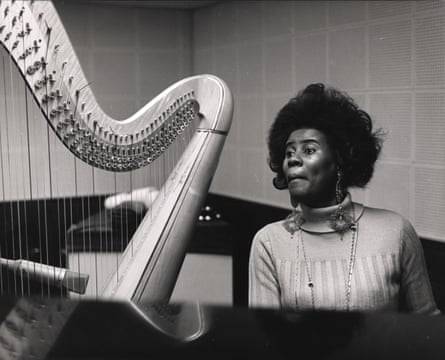
And it was a way of connecting to Africa. “The Christianity of the slave represented a movement away from Africa,” Amiri Baraka wrote in this classic text Blues People. “It was the beginning of Africa as ‘a foreign place’.” For the jazz musicians of this long and spiritual era, to reconnect with Africa was more than idle curiosity. It was a way of suturing back an essential part of you that had been forcibly torn from your collective body generations ago. By the mid-1950s and 1960s, African-themed events at nightclubs and restaurants in Brooklyn and Harlem abounded, with UN diplomats from newly independent African countries frequently dropping in. The jazz pianist and composer Randy Weston described the era: “Many of the African countries were just getting their independence. And the wonderful thing about being in New York, the United Nations is there. So I had an opportunity to meet many African diplomats. Many people from Kenya, from Nigeria, from Ghana, from Egypt, many parts of Africa. And I would always talk to them to try to understand a little more about the continent.”
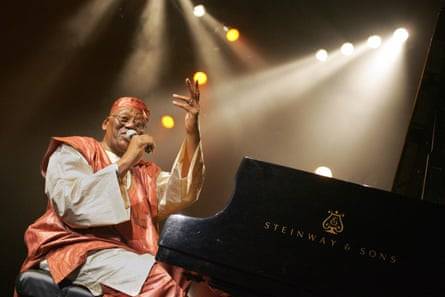
Weston eventually relocated to Morocco for about five years and traveled throughout the African continent before returning to the USA in 1972. “I went on a spiritual trip back home,” he told DownBeat magazine in 1998, referring to Africa. “I wanted to hear where I came from, why I play like I play, why we play music like we do. We went to about 18 countries, and wherever we went we asked to experience the traditional music of the people. Hearing the traditional music was like hearing jazz and blues and the Black church all at the same time.”
Weston also joined forces with master Gnawa musicians in Morocco. (He was playing with them and learning from them before Sanders did the same.) Others, such as Alice Coltrane, were moving in more eastern directions while still others, like Sun Ra, lived in intergalactic space and called us all to move in with him.
The spiritual jazz movement continued, but it didn’t take long for it to be eclipsed by other trends, everything from commercially accessible fusion, launched by the likes of Miles Davis, to the less accessible avant-garde innovations of Cecil Taylor or Albert Ayler. By the 1990s, jazz was also firmly ensconced in the ivory tower, featuring at prestigious arts institutions such as Lincoln Center and the Kennedy Center.
Still, the Islamic influence in American popular music never went away, though it did change addresses. Shifting from sound to word, Muslim references could now be found more in the new hip-hop than in the new jazz, even if hip-hop Islam was a yet more heterodox creed than the one found within the Ahmadiyya community. Foundational hip-hop artists including Rakim, Big Daddy Kane, and the Wu-Tang Clan were invoking the words and numbers of the Nation of Gods and Earths, an offshoot of the Nation of Islam.

Five Percenter language has permeated the pop cultural lexicon. For example, the “G” in “wassup, G?”is not “gangsta”, as many might think, but “God”. In this creed, Five Percenter men are considered Gods, and Five Percenter women are known as Earths. “Dropping science” is a term from the Five Percenters, as is the emphatic term “word”, a short form of “word is my bond”.
Scholars have written on the important influence of Five Percenters on early hip-hop. But there are also other, more mainline Muslim influences on the American scene. Five Percenter doctrine was foundational in hip-hop, but it operated as an esoteric language among the educated and enlightened. The way the language and numerology (with an emphasis on the number 7) operated was to signify kinship and belonging, which was particularly important in the early hip-hop years. But other Muslim rappers, often associated with Sunni Islam, performed their deen, their faith, more in line with the jazz tradition that preceded it, as a search for self.

Mos Def is hardly the only one who invokes this devotional search. A Tribe Called Quest’s Q-Tip (Kamaal Fareed) is another. “Praise the Lord of the worlds that’s unseen / Respect me for that and let me do my thing,” we hear in the song Get a Hold. More recently, the Five Percenters, the Nation of Islam, and Sunni Islam (and more) tentatively unite to find a home in the lyrical power of Jay Electronica. “All I have in this world is my flag and my sword / I’m on the battlefield with the flag of my Lord,” rhymes Electronica in Fruit of the Spirit. “My shahada is my cantada / My heart chakra light up when I make sajda at fajr.”
While spiritual quests such as Jay Electronica’s aren’t as common in today’s hip-hop, the search hasn’t disappeared entirely. After all, the history of Black music shows us time and again how the journey seeking the divine produces such a profound musical experience.
And that’s what Pharoah Sanders leaves behind. His was an unyielding search for a way to transcend the secular ugliness of this world, and with his passing Sanders may have finally achieved that goal. Yet music – like all that is holy – never dies. And Pharoah’s saxophone will honk and shriek and envelop all our senses, reverberating to heaven and back, and maybe even beyond.
#Islam#Pharoah Sanders#how Pharoah Sanders found freedom and rebellion in Islam#Nation of Islam#5% Nation of Islam#Sunni Islam#Five Percenters#jay electronica#mos def#rakim big daddy kane#John Coltrane#St John Coltrane#Alice Coltrane
3 notes
·
View notes
Text
The Nativity in the Qur’an: What Islam has to Say about Jesus and Mary

Disclaimer:-
This article is written by an unprofessional person for purpose of educating and opening a dialogue, if you need to know more about Islam in the larger context of Abrahamic religion traditions, please go to scholars and imams in your local universities and mosques, or to the nearest libraries for books that explain it.
2nd disclaimer:-
This article is written from a Sufi leaning Sunni, the Shi’I and Ahmadi view points, as well as Salafi view point are largely similar and knowing the differences would require much more than reading this article.
It begins with two sisters
In Roman occupied Palestine, the Jewish people lived in a strange and complicated state. The Romans looked down on them, and viewed the highest ranking members of the Jewish society as beneath the lowest Roman beggar, for this is the way colonizers always view the colonized. The Jewish society itself has fallen into the habit that all human patriarchies have of forming into an unjust hierarchy. Of course not all people on the top or near the top of the hierarchy were okay with injustice, and among those who were not happy with the injustices around them were Zachariah the prophet and Imran the priest.
These two men were married to two sisters, Elizabeth and Anne, respectively, and they both had trouble conceiving, and at some point Anne decides to take it up all the way to Almighty:-
“Indeed, Allah chose Adam, Noah, the family of Abraham, and the family of ’Imrân above all people ˹of their time˺. 33 They are descendants of one another. And Allah is All-Hearing, All-Knowing. 34 ˹Remember˺ when the wife of ’Imrân said, “My Lord! I dedicate what is in my womb entirely to Your service,1 so accept it from me. You ˹alone˺ are truly the All-Hearing, All-Knowing.” 35”
Qur’an Chapter 3 Ali ‘mran 33:35
Anne, being the God loving, God fearing woman that she was, vowed to have her child dedicating their life to service, yes she was making a decisions for her unborn child and that is unacceptable today, but in the historical context, that was just fine. And it works, God listens and Imran and Anne have Mary, knowing that children dedicated to service who do the best and most serious work are usually male, and that girls like her child are relegated to menial tasks and chores, and happy as she was with the birth of her daughter, she talks to God again, as to tell Him that her child won’t be able to do as much in His service as if she was a boy, not knowing what God has kept in store of the blessed Mary:-
“When she delivered, she said, “My Lord! I have given birth to a girl,”—and Allah fully knew what she had delivered—“and the male is not like the female.1 I have named her Mary, and I seek Your protection for her and her offspring from Satan, the accursed.”2 36”
Qur’an Chapter 3 Ali ‘mran 36
Mary’s first miracle and John’s birth
And God did protect Mary form the devil, but not from being orphaned at early age. Who has a right to Mary’s guardianship was so contested, but God’s will prevailed and she was entrusted to her maternal aunt’s husband, as Mary grew and went to live in a sanctuary in the temple to fulfill her mother’s vow, Zachariah noticed how special Mary was. Mary always had fresh fruit in her room that was not in season, and that was strange given the fact that she doesn’t leave the temple
“ So her Lord accepted her graciously and blessed her with a pleasant upbringing—entrusting her to the care of Zachariah. Whenever Zachariah visited her in the sanctuary, he found her supplied with provisions. He exclaimed, “O Mary! Where did this come from?” She replied, “It is from Allah. Surely Allah provides for whoever He wills without limit.” 37 “
Qur’an Chapter 3 Ali ‘mran 37
That’s when he saw that despite the fact that both he and Elizabeth are well beyond child baring age, there just might be hope for them. And indeed God listens and gives him and Elizabeth a son.
“Kãf-Ha-Ya-’Aĩn- Ṣãd.1 ˹This is˺ a reminder of your Lord’s mercy to His servant Zachariah,2 when he cried out to his Lord privately,3 saying, “My Lord! Surely my bones have become brittle, and grey hair has spread across my head, but I have never been disappointed in my prayer to You, my Lord!4 And I am concerned about ˹the faith of˺ my relatives after me, since my wife is barren. So grant me, by Your grace, an heir,5 who will inherit ˹prophethood˺ from me and the family of Jacob, and make him, O Lord, pleasing ˹to You˺!”6 ˹The angels announced,˺ “O Zachariah! Indeed, We give you the good news of ˹the birth of˺ a son, whose name will be John—a name We have not given to anyone before.”7 He wondered, “My Lord! How can I have a son when my wife is barren, and I have become extremely old?”8 An angel replied, “So will it be! Your Lord says, ‘It is easy for Me, just as I created you before, when you were nothing!’”9 Zachariah said, “My Lord! Grant me a sign.” He responded, “Your sign is that you will not ˹be able to˺ speak to people for three nights, despite being healthy.”10 So he came out to his people from the sanctuary, signalling to them to glorify ˹Allah˺ morning and evening.10 ˹It was later said,˺11 “O John! Hold firmly to the Scriptures.” And We granted him wisdom while ˹he was still˺ a child,12 as well as purity and compassion from Us. And he was God-fearing,13 and kind to his parents. He was neither arrogant nor disobedient.14 Peace be upon him the day he was born, and the day of his death, and the day he will be raised back to life!15”
Chapter 19 Maryam 1:15
From here on out, Zachariah and his son John peace be upon them both, would have their own journey to take that will intersect with the story of Mary’s son, but let us not get ahead of ourselves.
In comes Gabriel
At this point, Mary is a teenager, serving in the temple and living in a sanctuary with a window looking east. Let the Qur’an tell us what happened then:-
“And mention in the Book ˹O Prophet, the story of˺ Mary when she withdrew from her family to a place in the east,16 screening herself off from them. Then We sent to her Our angel, ˹Gabriel,˺ appearing before her as a man, perfectly formed.17 She appealed, “I truly seek refuge in the Most Compassionate from you! ˹So leave me alone˺ if you are God-fearing.”18 He responded, “I am only a messenger from your Lord, ˹sent˺ to bless you with a pure son.”19 She wondered, “How can I have a son when no man has ever touched me, nor am I unchaste?”20 He replied, “So will it be! Your Lord says, ‘It is easy for Me. And so will We make him a sign for humanity and a mercy from Us.’ It is a matter 1˹already˺ decreed.”21”
Chapter 19 Maryam 16:21
Now, put yourself in Mary’s shoes, she is an unmarried teenager dedicated to serve God, living in a conservative society, the angel Gabriel appears to you as a strange man, inside your sanctuary, giving you the news that you will bare and deliver the Messiah your people are waiting for without being married. As a single woman living in a conservative society, I know how earth chattering pregnancy outside of marriage is, this news wouldn’t be easy on an adult, let alone a teenager.
The birth
Now to the story we are all here for, the nativity itself, the birth the one called by Muslims Messiah and Christ, and by Christians Lord and savior. Now in the bible there were a lot of people involved in the nativity, in the Qur’an there were only Mary, Gabriel and the palm tree under which Mary has given birth, and we don’t know if the birth was a messy as all natural births usually are, and they are super messy, as miraculous as the conception itself, or somewhere in between, regardless, birth is difficult and natural births two thousand years ago were often deadly, Mary knew that the second she received the news, now let’s see the Qur’an describes it:-
“So she conceived him and withdrew with him to a remote place.22 Then the pains of labour drove her to the trunk of a palm tree. She cried, “Alas! I wish I had died before this, and was a thing long forgotten!”23 So a voice1 reassured her from below her, “Do not grieve! Your Lord has provided a stream at your feet.24 And shake the trunk of this palm tree towards you, it will drop fresh, ripe dates upon you.25 So eat and drink, and put your heart at ease. But if you see any of the people, say, ‘I have vowed silence1 to the Most Compassionate, so I am not talking to anyone today.’”26”
Chapter 19 Maryam 22:26
This part is a fine example of how faith is a logic defying act, Mary is giving birth, alone in the middle of nowhere, and she’s anticipating a storm of rumors and speculations once she faces her people with the child, and yet she is told to shake the palm tree. In normal circumstances, it would be impossible shake a palm tree hard enough to have dates fall from it. This moment however, was not normal, Mary in an act of faith shook the tree, and the dates, despite needing someone to climb up and pick them, have fallen down, and being the desert’s nutrition miracle that they are, helped restore her well enough to carry the newborn and go back to her people, and this is what happened next:-
“ Then she returned to her people, carrying him. They said ˹in shock˺, “O Mary! You have certainly done a horrible thing!27 O sister of Aaron!1 Your father was not an indecent man, nor was your mother unchaste.”28 So she pointed to the baby. They exclaimed, “How can we talk to someone who is an infant in the cradle?”29”
Chapter 19 Maryam 27:29
Mary’s father was as mentioned, was a respectable priest named Imran, named after Moses’ and Aaron’s father, who, in turn, had a sister named Mary who had an important role in saving Moses’ life. The Jewish people saw that heroic Mary from the Torah in her name sake, until she walked into the town square with a baby, so who will rise to defend the young mother?
The first miracle of Christ
“˹Jesus˺ declared, “I am truly a servant of Allah. He has destined me to be given the Scripture and to be a prophet.30 He has made me a blessing wherever I go, and bid me to establish prayer and give alms-tax as long as I live,31 and to be kind to my mother. He has not made me arrogant or defiant.32 Peace be upon me the day I was born, the day I die, and the day I will be raised back to life!”33”
Chapter 19 Maryam 30:33
Need I say more?
That is when Joseph enters the picture, but that I will talk about in details when it’s time to talk about the holy family’s journey in Egypt.
Modern thoughts
Here in Egypt I am surrounded by Coptic Christians who venerate she who bore the Messiah, so imagine my shock when I realized that there protestants out there who say that she isn’t that important…., like WHAT? Excuse you!! If the all the great women in all Abrahamic religious traditions lived in their own kingdom, mother Mary would be their rightful queen. Don’t get me wrong, in my understanding of Islam asking a human to interfere in your behalf to God is idolatry, but loving people who are close to God as means of loving and getting close to Him is not, and after reading and understanding what the virgin Mary has gone through, how could you not love her?
So, peace be upon you Mary and your blessed son.
And finally, if your Muslim buddy is a devout who does not celebrate Christmas, respect that. But have happy and safe holidays yourself. And if you are so willing listen to a recitation of the chapters of the Quran that mention the story, I’ll leave soundcloud links of my favorites below.
Salam and see you all with a new post in new years.
#the nativity story#christmas#xmas#christianity#islam#the bible#the quran#jesus#mary#zachariah#john#moses#aaron
3 notes
·
View notes
Text
#The_goal_of_the_wise#eddie munson#fred jones#velma dinkley#rise of the tmnt#scooby gang#steve harrington#ke huy quan#angela bassett#daphne blake
2 notes
·
View notes
Text
How Nina Ahmadi Weaves their Cuban Heritage into their Artwork
Nina Ahmadi explains how they discovered their Cuban heritage at the age of twelve and have since been on a self-discovery journey to connect to their cultural roots.
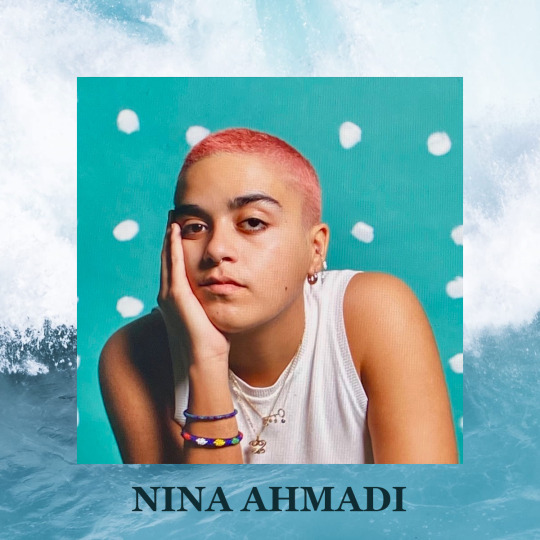
What’s your Cuban background?
So I actually didn’t know that I was Cuban until I was like 12, which is funny. I grew up mostly in Miami, like when I was six years old. We moved from New York to Miami. And all my friends were Cuban. And I grew up with my mom and my dad. But then when I was 12, I found out that my dad who raised me wasn’t my biological dad, my biological dad was actually a lovely Afro Cuban man. So, my only experience [up until that point] with being Cuban was my friends and the culture around me.
So how would you say your Cuban identity influences your art, then? If it does?
The first body of work that I ever did, that I felt has been really important for me and I felt really accomplished with was about my culture and about wrestling with who I was.
In school [when I was 15 or 16], I created … [this] painting… And that was the first time I really poured my heart into artwork. And so I guess that was the first time and it was just processing who I was and what it meant to me. And since then, I have tried to learn more about culture and about my family. I incorporated [that] into my work. I’ve been very inspired by Santería which is a big thing for a lot of Cuban people. And religion and spirituality and also just family lines. And I’ve been just trying to make work around that.
And I was actually proud, because the first couple years, like I was processing that “Oh, my dad is not my dad.” And then afterwards at that point, I had arrived at the point of being like, “What does that mean now?” It’s not just that I’ve grown up around Cuban culture, but I also am Cuban. And that’s part of my lineage.
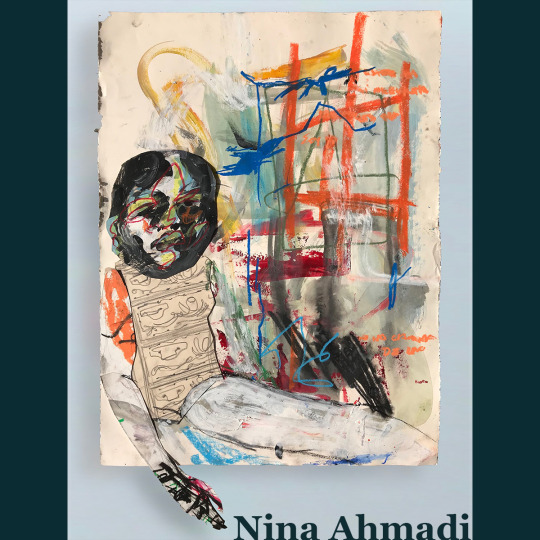
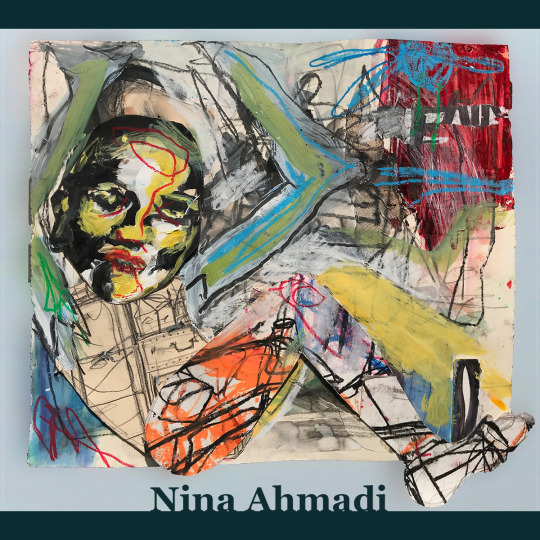
Did you feel like you were having struggles with connecting to your Cuban heritage at first?
I definitely did struggle with it. That’s why I made art about it. It’s very challenging to find out that you’re not who you thought you were. Cuban culture is an incredibly beautiful culture. So, it’s been a privilege to be able to connect with my family and feel connected in that way. And regardless of how it may feel, I know who my family is. My family knows who I am. And I’m connected to them. But yeah, definitely. Definitely was a struggle for a time.
So what would you say right now makes you feel most Cuban? Is it our language, dance food? Do you cook?
It’s tough because… it’s the whole thing of not feeling “blank enough,” you know, of anything. So like, not feeling Hispanic enough or not feeling Cuban enough, or not feeling like Iranian enough or not feeling all of these different intersections of my identity.
My family is what makes me feel Cuban. And also just being in Miami at home. I feel very lucky to be able to speak Spanish because, you know, a lot of people, their parents didn’t teach them Spanish growing up. And so now they feel very disconnected from that part of themselves. You know what I mean? And sometimes it’s because the parents did it out of their best interests. But sometimes that ends up having adverse effects.
So it’s been challenging. Like feeling connected to it even still. It’s hard. Just because now I’m also far from my immediate family. And yeah, it’s tough. The one thing now that helps me is talking to friends. And music, talking to people on the street, having a conversation with someone randomly, speaking Spanish and chatting about it.
Whenever I’m sad or bored, I’ll just play some salsa in my room and it’s very uplifting. My dad taught me how to dance the first time I met him in Cuba. He taught me how to dance salsa. So it’s always been associated with very good memories.
Original interview conducted on March 21st, 2022.
Ecocuban is a collaborative storytelling and education platform for Gen Z Cubans, Cuban Americans, and anyone of Cuban descent. Please consider sharing, liking, commenting to show your support.
Additionally, you may find the form to contribute your story for submissions here.
#ecocuban#cuba#cuban#cubana#cubano#cubanx#nina ahmadi#heritage#culture#diaspora#soscuba#patriayvida#reconnect#artwork#artist#artbasel#miami#miami artist#interview#carribbean#artists
2 notes
·
View notes
Text
On The Stabbing of Bishop Mari Mar Emmanuel
BISHOP Mari Mar Emmanuel of the Assyrian Church was recently stabbed by an individual who was motivated by a hatred of perceived dissent and blasphemy. According to footage we can see and eye witnesses, the Ahmadi Muslim attacker said that he would not have attended the service if Mari Mar had not mentioned his religion and his prophet. Bishop Mari is known for being a hardliner in his basic…
View On WordPress
#Arabic#Assyria#Australia#Biblical#Bishop Mar Mari#Christianity#Islam#Muslim#politics#psychology#Religion#Tik Tok#violence
0 notes
Text
‘Why single us out?’ Pakistan’s Ahmadi minority boycotts elections, again

Islamabad, Pakistan – Amir Mahmood remembers a meeting between his Ahmadi community and top officials of Pakistan’s government last September. He can’t forget how the community, for long a victim of persecution in the country, saw a decline in attacks on its graves and shrines in the days after that meeting.
But that respite did not last.
.adtnl6r-container { display: flex; flex-direction: column; align-items: center; width: 80%; max-width: 600px; margin: 20px auto; background-color: #FF3300; border: 1px solid #ddd; border-radius: 10px; overflow: hidden; box-shadow: 0 0 10px rgba(0, 0, 0, 0.1); } .adtnl6r-banner { width: 100%; max-height: 250px; overflow: hidden; border-bottom: 1px solid #ddd; } .adtnl6r-banner img { width: 100%; height: auto; max-height: 250px; } .adtnl6r-content { width: 100%; padding: 20px; box-sizing: border-box; text-align: center; } .adtnl6r-title { font-size: 1.8em; font-weight: bold; margin-bottom: 10px; color: #fff; } .adtnl6r-description { font-size: 1.2em; color: #fff; margin-bottom: 15px; } .adtnl6r-learn-more-button { display: inline-block; padding: 10px 20px; font-size: 1.2em; font-weight: bold; text-decoration: none; background-color: #0066CC; color: #fff; border-radius: 50px; /* Pill style border-radius */ border-color: #0066CC; transition: background-color 0.3s; } .adtnl6r-learn-more-button:hover { background-color: #45a049; color: #000; } .adtnl6r-marker { font-size: 0.8em; color: #fff; margin-top: 10px; }
Your Path to Online Virality! Reach people through websites, mobile apps, blogs, Facebook, Instagram, TikTok, LinkedIn, etc.
Advertise Everywhere!
Take Action
Ads by Adtional
As the world’s fifth-most populous nation prepares to vote on February 8, its half-million-strong Ahmadi community will boycott the election, after a spike in attacks on its members, institutions and even burial sites in the weeks leading up to the vote. For many Ahmadis, like Mahmood, the brief decline in attacks following the September meeting was proof of what could happen — if the country’s leaders wanted it.
“What the decline in attacks told us that if the state wishes, it can easily control the violence against us but unfortunately, the impression we get is that either some government is not clear-minded about its action, or is unwilling to help,” he said.
It is a sentiment driven by decades of entrenched discrimination, including in the electoral system. And it has led the community to boycott the elections. In a statement last week, the community’s leaders announced their “disassociation” from the vote. “Although the elections are ostensibly being held under a joint electorate, there is, however, a separate voter list prepared only for Ahmadi citizens due to their faith,” said a statement released by an organisation representing the community on Wednesday.
“This discriminatory treatment based on religion is a deliberate attempt to disenfranchise Ahmadi citizens from the electoral process for all intents and purposes and thus denying them their right to vote,” it added.
While the community has been avoiding participation in elections for nearly four decades, the latest boycott announcement came after three different incidents of Ahmadi grave desecration in the last two weeks, in different towns in Punjab province.
Mahmood, also a community spokesperson, said data showed that there were attacks on 42 Ahmadi places of worship across the country last year, as well as desecration of more than 100 graves in just the state of Punjab. The year 2022 also saw at least 14 mosques and 197 graves belonging to the community desecrated last year, according to the community’s statistics. At least three members of the community were gunned down in 2022, allegedly due to their religious affiliation.
‘No sense of belonging’
The Ahmadi sect considers itself Muslim. But they were declared “non-Muslims” in 1974 under Pakistan’s constitution. In the decades since the 1970s, hundreds of attacks, including murders and desecrations of their religious places and graveyards, have been reported in Pakistan.
Community members were active participants in the electoral process until and including in the 1977 elections, before then-army chief General Zia ul-Haq imposed martial law.
The military strongman passed a ruling in 1984 which restricted the community from practising Islamic rituals or publicly displaying any symbol that identifies them as Muslims, including building minarets or domes on mosques, or publicly writing verses from the Quran.
In the elections that were conducted in 1985, he introduced separate voter lists for different religious groups in the country, after which the community began their boycott of the polls. The system of separate voter lists lasted until the 1997 elections, after which it was unified again for the 2002 elections under military ruler General Pervez Musharraf.
Under the revised joint list, all Pakistanis regardless of their religious affiliation were combined in a single voter list — except Ahmadis. They were instead put in a separate “supplementary” list, where they are identified as “Qadianis”, a term that refers to the town in Indian Punjab where the Ahmadi tradition took root. The community considers the term derogatory.
“If there can be one voter list which has the rest of the citizens of Pakistan, regardless of their caste, ethnicity, and faith, what is stopping them from adding Ahmadis to that list? Why single us out?” Mahmood asked.
Other members of the community say the discrimination in the electoral lists is in keeping with the bias they confront in everyday life.
“I moved to Pakistan two decades ago from the United Kingdom after getting married,” Fatima*, a 47-year-old homemaker, told Al Jazeera. “I am human, of course. I also get frustrated a lot, because I am a citizen of Pakistan and I want to be able to vote,” she said.
“I have voted in the UK in the past when I was young, and it has really given me this sense of pride and achievement, that I can contribute in a small way to my country. But in Pakistan, that sense of belonging has been stolen from me, on account of my faith,” she added.
Akbar*, a 22-year-old student in Islamabad, says that while he is politically aware and would have liked to vote if there was a unified voter list, candidates of mainstream parties often resorted to inflammatory comments against his community.
“It is something very commonly seen in Pakistani election campaigns that bigotry, against our community is very evident. Candidates use inflammatory comments to garner votes while putting our lives at risk,” he tells Al Jazeera.
“There is a clear sense of alienation in the community. If all the mainstream parties are thinking along such lines, how can we even think about voting, especially when the list wants us to renounce our faith and call ourselves non-Muslims?” Akbar added.
‘Limited influence’
Political analyst Tahir Mehdi said that for Pakistan’s religious conservatives, the decision to get Ahmadis declared non-Muslims through the constitutional amendment of 1974 remains a major achievement.
“This is a subject on which there will be no compromise, and they want to protect this victory at any cost,” he said.
Mehdi added that with because the community’s population in Pakistan is relatively small, it is not a significant enough voting constituency to woo for parties. “Their lack of numbers means a limited way to influence polling results, thus leaving no incentive for the state, or even political parties, to change their policies.”
Fatima, the housewife, said that the persecution against the community goes much beyond attacks or the separate voter list.
“We have so many restrictions and limitations in our day-to-day lives. Something as simple as ordering something online, the vendor will refuse to deliver the moment they see the name of Rabwah city as the address of delivery,” she said. Rabwah is a small city in Punjab province, situated roughly 177km (110 miles) west of Lahore. The city houses close to 80,000 people, with over 90 percent of the population belonging to Ahmadi community. The government officially renamed the city Chenab Nagar in the late 1990s but the name has not stuck.
“I have experienced this multiple times myself, that a vendor would point out to my city, and say you live in Chenab Nagar, you must be a Qadiani [a derogatory term for Ahmadis], and they point-blank refuse to deliver,” she said.
Yet, she said, that has not weakened her spirit — or her faith.
“We are not going to give up on our faith. We are never going to renounce it, even if it means not being able to vote. The state is trying to control us, but they won’t succeed,” she said.
That is also why Akbar, the student in Islamabad, refuses to participate in the elections.
“Just by participating in a system like this, it feels like you’re endorsing something that is working towards eliminating you from it. It will be a betrayal to myself and to my community to participate in this apartheid system of dual [voter’s] list singling out me out for my faith.”
*Names changed to protect the individuals.
.adtnl6r-container { display: flex; flex-direction: column; align-items: center; width: 80%; max-width: 600px; margin: 20px auto; background-color: #FF3300; border: 1px solid #ddd; border-radius: 10px; overflow: hidden; box-shadow: 0 0 10px rgba(0, 0, 0, 0.1); } .adtnl6r-banner { width: 100%; max-height: 250px; overflow: hidden; border-bottom: 1px solid #ddd; } .adtnl6r-banner img { width: 100%; height: auto; max-height: 250px; } .adtnl6r-content { width: 100%; padding: 20px; box-sizing: border-box; text-align: center; } .adtnl6r-title { font-size: 1.8em; font-weight: bold; margin-bottom: 10px; color: #fff; } .adtnl6r-description { font-size: 1.2em; color: #fff; margin-bottom: 15px; } .adtnl6r-learn-more-button { display: inline-block; padding: 10px 20px; font-size: 1.2em; font-weight: bold; text-decoration: none; background-color: #0066CC; color: #fff; border-radius: 50px; /* Pill style border-radius */ border-color: #0066CC; transition: background-color 0.3s; } .adtnl6r-learn-more-button:hover { background-color: #45a049; color: #000; } .adtnl6r-marker { font-size: 0.8em; color: #fff; margin-top: 10px; }
Your Path to Online Virality! Reach people through websites, mobile apps, blogs, Facebook, Instagram, TikTok, LinkedIn, etc.
Advertise Everywhere!
Take Action
Ads by Adtional
0 notes
Text
Iran’s Christians Flee to Unlikely Sanctuary in Bulgaria
Iran's embattled Christian community fled from increasing religious persecution, with hundreds finding refugee in the unlikely sanctuary of Bulgaria.
Omid Salehi, 21, who had converted to Christianity 12 years prior along with his family, was a representative example of the religious refugees escaping from the Islamic nation. His family, comprising five members, initially sought asylum in Turkey before making their way to Bulgaria – a former Soviet bloc country that now held European Union status.
Salehi stated, "My family changed from Muslim to Christian and when you convert it is so hard to live [in Iran]." His introduction to Christianity occurred through a friend who had also converted and invited them to a prayer meeting at a Christian home.
By July, Iran's regime had carried out another wave of arrests, primarily targeting Christians and leaders of the Home Church movement in the country.
Nikolai Chirpanliev, president of Bulgaria’s State Agency for Refugees, reported the growing Iranian Christian community in Sofia, stating that "Now there are 100 to 200 people from Iran... They are running because of the existing regime in Iran, where they are being persecuted because of their religion."
Underground and home churches became a common way for Iranian Christians, particularly converts, to practice their faith away from the repressive eye of Iran’s security apparatus. Since Iran’s 1979 Islamic Revolution, Muslims who converted to Christianity faced the threat of the death penalty for apostasy. A UN report in January revealed that at least 49 Christians were imprisoned in Iran for practicing their faith.
American citizen Pastor Saeed Abedini was one such case, sentenced to eight years in prison for his Christian activities.
Salehi revealed the constant fear his family lived with due to their Christian faith, sharing, "all the time we have to worry about police cars and going to prison." Even a friend of his was arrested and imprisoned for being a Christian.
Omid's family, including his mother, Nilofar Porkali; father, Hasan Salehi; brothers Arian Salehi and Adian Salehi; and cousin Sayed Mahmud Ahmadi Organi, found refuge in a residence owned by the Global Village Champions Foundation, situated on the outskirts of the Bulgarian capital, Sofia. This family had escaped from the northeastern city of Esfarayen.
The foundation, headed by businessman Yank Barry, formerly the lead singer of the 1960s band The Kingsmen, extended housing, medical care, and social services to refugees from Christian, Sunni, and Kurdish backgrounds fleeing Syria, Iraq, and Iran. Barry's efforts assisted nearly 800 refugees, securing housing for them in Bulgaria, a common European entry point for individuals escaping conflict and persecution in the Middle East.
Barry, often referred to as the "Jewish Schindler," aimed to accommodate 1,200 refugees, mirroring Oskar Schindler's rescue of 1,200 Jews during the Holocaust.
Despite Iranian President Hassan Rouhani's initial claims of moderation upon taking office, the persecution of Christians continued without abatement, according to Salehi. "All presidents of Iran only think of themselves, about money," he remarked. "Presidents change, but the politics stay the same."
In July, the regime detained a prominent Iranian pastor, Pastor Matthias Haghnejad, along with church members Mohammad Roghangir and Surush Saraie. These individuals were linked to the home-based Church of Iran organization. The crackdown on Pastor Haghnejad involved the confiscation of his Bible by security forces.
In conclusion, Omid Salehi's and his family's plight serves as an example of the severe religious persecution that Iranian Christians endure.As evidence of how urgently these refugees' rights and safety must be protected on a global scale, they were able to flee to Bulgaria and receive assistance from groups like the Global Village Champions Foundation. The ongoing difficulties faced by religious minorities in the area are highlighted by the fact that persecution of Christians continues in Iran despite a change in government.
For more information about the article visit website : https://yankbarry.com/
0 notes
Text
research: the process of everything
Everything is the process - long process, not built with one goal but with millions of small goals. Everything you see in the world is the process and systems, not the goal.
The end of something (a goal, or a life) is not the end. it's a reaching point.
Nobody knows what will happen next, so live for the now, live for the struggle, for the pain, for the joy.
Notes from buddhism
Everything changes.
it is the illusion of a seperate, permanent self that chains us to suffering and dissatisfaction.
In between any two opposites lies emptiness, or sunyata, which is not nothingness but a vast creative potential, the middle way is fluid and full of possibilities.
what happens after death? - viewed from different religions and personal opinions
catholic church teaches that the soul is judged, the righteous and free of sin go to heaven, those who die in unrepented mortal sin go to hell.
similar to islam who believe that we get judged by two angels and get chosen to go to paradise or suffer punishment of the grave.
ahmadi muslims believe that the afterlife is not material but of a spiritual nature, the soul will give birth to another rarer entity that will have a similar relationship to the soul as the human.
spiritualism, worships the solar system/ planets? souls travel through stages of planets in the solar system and reunite with the world soul and the universe.
some traditional african religions believe in no afterlife, death is the end to existence.
what i think - our bodies molecules will return to the processes of everything, we will scatter everywhere. there will be no consciousness after death but we will continue to exist. "we" being our bodies, what we are made out of. we will just exist in different forms.
if people all over the world have different theories, why do they all believe themselves. - if religions were right about the origins of life wouldn't there be a better record than evidence for earths/ the universes processes. eg, evolution, stages of the earth etc.
I want to create how i interpret existence and consciousness, I think I can inevitably only have a very human approach to seeing our existence, we only have the means to guess what happens next, or before. - we cant even remember when we were born, and i think death will be like trying to remember something that we have no recollection of happening.
formation of the universe
began with an explosion of space. space is continuously expanding.
where did everything come from?
what was before the big bang? - possibly multiple universes
how did the big bang and its ripple effect lead to human existence, and how rare is consciousness.
why are we here, whats the meaning of how do the elements create something that isn't physical? - our conciousness
what is the meaning of life?
experiencing reality by interacting authentically with the environment and others.
giving to the world through creativity and self expression.
see the world moving, have an positive attitude when faced with situations that we cannot change.
it is not clear that there is, or even can be, some form of afterlife that entails the survival of the personal ego. - we need a meaning of life to sustain an ego, to feel goof about our existence.
reliance on an eternal afterlife only postpones the question of life's purpose.
human life may not have been created with any pre determined purpose, but this doesn't mean that our lives cant have purpose.
even in the most painful and dispiriting of circumstances, life can still be given a meaning, and so too can suffering.
0 notes
Text
1 note
·
View note
Text
HOW VALID WAS EAM JAISHANKAR’S REPLY TO US ENVOY ERIC GARCETTI’S STANCE ON CAA?
On India today’s second conclave , the external affairs minister Mr. Jaishankar was asked to give his outlook on US envoy's take on CAA. CAA (Citizenship Amendment Act 2019) provides Citizenship to persecuted religious minorities of Hindus, Sikhs, Buddhists, Jain’s and Parsis from the countries of Pakistan, Bangladesh and Afghanistan. Eric Garcetti during Senate Foreign Affairs Relations Committee spoke that that the CAA was discriminatory towards the muslims. The EAM then responded to this by saying “US through its Lautenberg and Specter Amendment, provided an easy pathway to citizenship based on the criteria of religion “ , he also pointed out the Germany descent was again an easy pathway for German citizenship, but are these actually problematic and truly discriminatory? Well.. the answer is they fall somewhere in the grey area. While the Lautenberg amendment might be discriminatory , the US refugee laws provide citizenship to even those people who come from the Islamic countries of Iraq and Afghanistan in cases of family reunification. When it comes to Germany granting citizenship on the basis on German descent , isn’t it a criteria for Indian citizenship too ? Even if you take a close look at US refugee laws , you will find “persecution” as it’s main criteria but CAA cuts off “religion” as it’s criteria . Ahmadis of Pakistan and Bangladesh, Shia muslims and Uyghurs of Afghanistan despite belonging to the Muslim religious are immensely persecuted in their countries . Indian government through this law portrays that’s its idealogical core was always about exuding and discriminating against the Muslim community , Eric Garcetti’s statements on CAA further just substantiates this perception of India over the international level.
1 note
·
View note